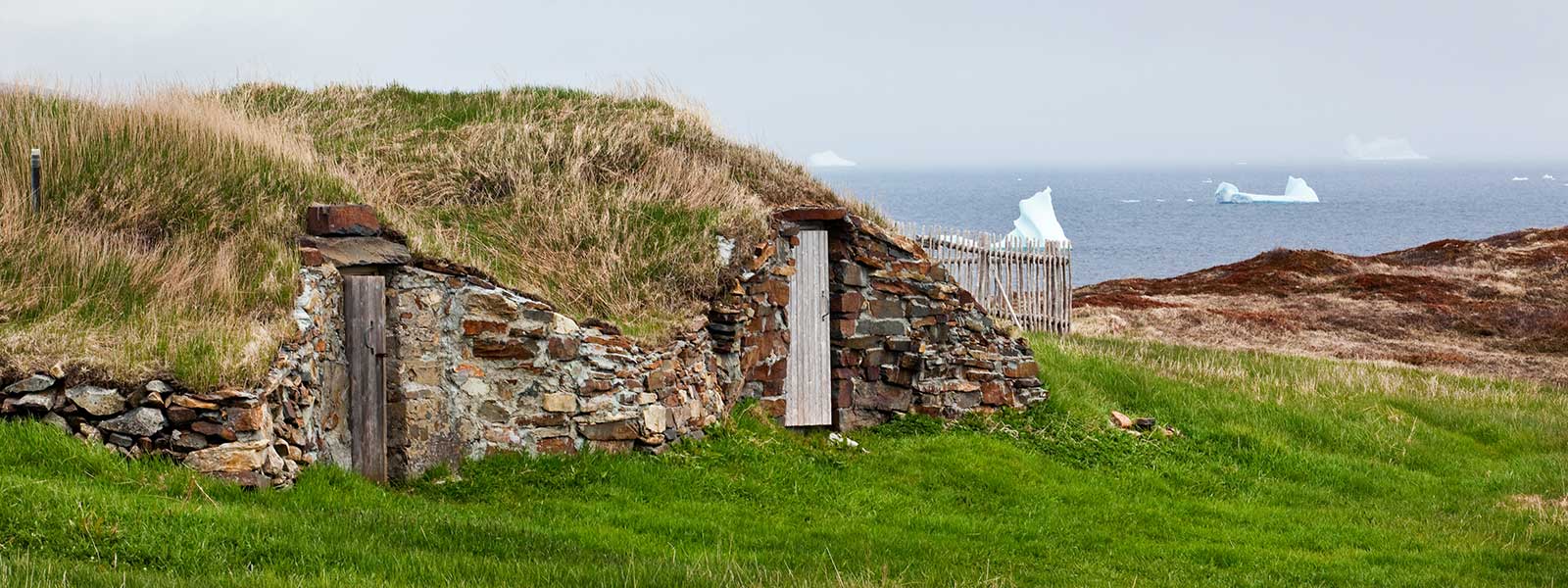The geological history of an area greatly defines the landscapes we see, and how people live. The rocks shape the soil above them, and in turn the soil controls what can be grown. In this region the soils tend to be stony and not very fertile. Families in the area would grow crops in their own gardens, enriching the soils with what could be found locally. Kelp, a type of seaweed, would be added in the fall, and mixed into the soil the following spring. Fish bones, offal, and capelin fish would also be added. Together, these provide a vital source of phosphorous and nitrogen – essential plant nutrients. The harvest could be stored in local root cellars, made of the local ‘flagstone’, to last them through the long winters.
Elliston is the “Root Cellar Capital of the World”, with 133 documented root cellar structures to preserve vegetables and perishables.
Getting Here
Exit Route 230 at Elliston turnoff (Route 238) and proceed to Elliston; turn right in Elliston towards Sandy Cove and Maberly. Park at the vista and/or puffin colony.
UTM: 0351156E, 5387962N
Flora/Fauna
The area is characterized by open peat lands and bogs, with its cover of peat, blackberry earth and scrubs of bog and sheep (goo-witty) laurel, Labrador Tea and rhodora. Patches and drokes (a thick grove of trees in a valley, sometimes with a stream) of stunted fir, spruce, juniper (larch, tamarack) and alder are common. Deciduous trees are rare or absent. Ponds and brooks are common. Tuckamore is present on the coastal cliffs – a thicket of interwoven stunted spruce.
Cultural/Historical Attractions
Elliston hosts the annual Puffin festival; Roots, Rants and Roars festival, and puffin rock. The area also boasts recreations relating to subsistence living such a fish flakes, and traditional garden beds. The Elliston Municipal Park and Campground offers serviced campgrounds, tenting and picnic areas, located opposite Sandy Cove Beach.
Cultural Attractions
The following is a list of Cultural Heritage Sites in Elliston:
| John C. Crosbie Sealers Interpretation Centre and Memorial Site | Commemorates the 254 lives lost at sea in the twin sealing disasters of 1914. |
